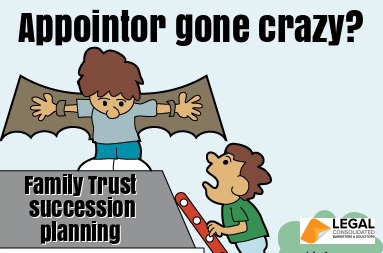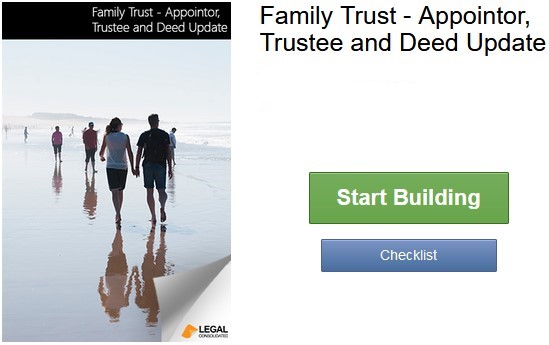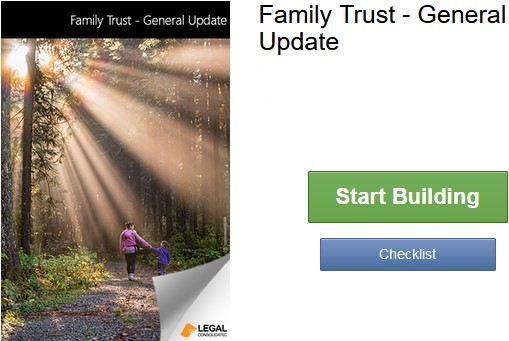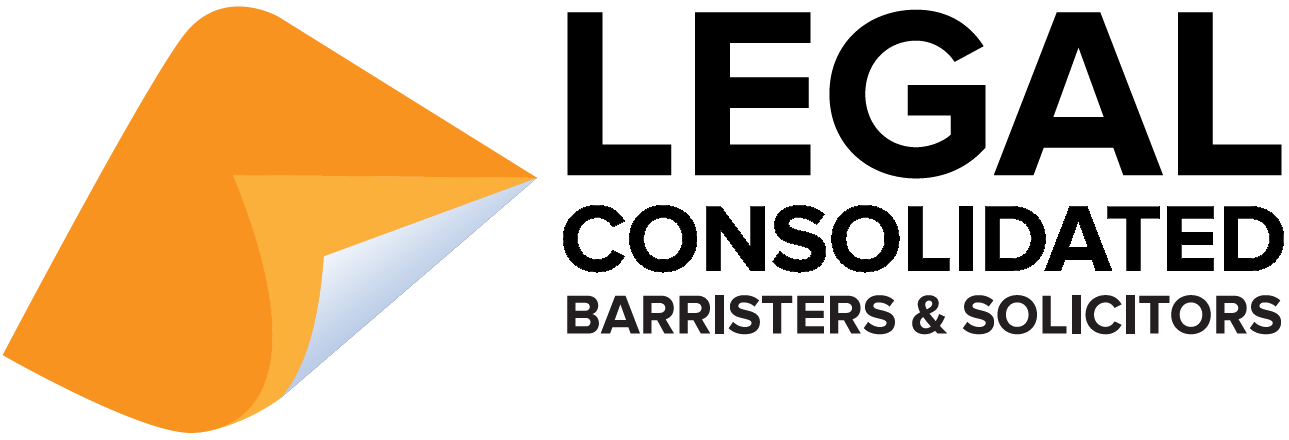 Family Trust succession planning
Family Trust succession planning
Many assets don’t go into your 3-Generational Testamentary Trust Will at death.
These assets do not go into your Will:
- Joint tenancy
- Superannuation (well not automatically)
- Cross-owned insurance
- Family Trust assets (except for loan accounts).
My doctoral thesis was on succession planning. And I can tell you that succession planning for the Family Trust is the most challenging.
What happens if the Appointor does not die but becomes of unsound mind?
Family Trusts are flexible for tax but not flexible for succession planning
I love family trusts. They are flexible. Every year you hunt down family members with the lowest marginal tax rates. Watch the law firm’s free training course on Family Trusts here.
Family Trusts are ‘discretionary’. The Appointor (god) tells the Trustee who gets the income each year. The:
- Trustee
- Default beneficiaries; and
- General beneficiaries
have no say in the operation of a discretionary trust. The Appointor is the only one in control. The appointor is god.
All these powers are subject to your trust deed – not legislation. The key roles in the trust deed are generally the trustee, with the day-to-day control, and the appointor who controls who the trustee is.
All that mum and dad have, all that they can give is the right to make the children Appointors of the Family Trust. The Appointor is where succession planning starts and ends for a Family Trust.
Appointors only act unanimously
The Appointor is the key role in the discretionary trust. This may not be appropriate for the next generation. Who is appropriate to have the power to control the trustee? Can that role be a joint role? If so, do decisions have to be unanimous or just a majority vote? Or could a new company be the Appointor? If so, who are the directors and shareholders of that new company? Do you need a shareholders agreement?
have the power to control the trustee? Can that role be a joint role? If so, do decisions have to be unanimous or just a majority vote? Or could a new company be the Appointor? If so, who are the directors and shareholders of that new company? Do you need a shareholders agreement?
A good Family Trust deed makes the Appointors act unanimously. There is no other way. Otherwise, your two daughters will gang up on your son and take 100% of the Trust’s assets. Control is an absolute concept. It cannot be fractionally divided between the next controllers.
Distribute capital out of the Family Trust for free when you die?
There are many tax exemptions at death. There is generally a ‘roll over’ of CGT and transfer (stamp) duty. Therefore, there is generally neither tax when the assets go from the dead person, to the executor and then to the beneficiary. But this does nothing to help the Family Trust. Family Trust assets don’t belong to the deceased estate.
When you die nothing happens to the Family Trust. An Appointors death does not wind up or affect the trust.
If your children are the Appointors they still can’t take the assets out of the Family Trust. If they do they trigger Captial Gains Tax.
To see succession planning of the Appointor see clause 6 in our Legal Consolidated Family Trust Deed. You can see our Family Trust Deed Sample here for free.
Clause 6 in our Family Trust deed addresses 9 issues – all of them are about the Appointor and succession:
- More than one child?
- Relinquish position?
- Fetter discretion?
- Change the Trust Deed?
- Verbal decisions ok?
- Change Backup Appointors?
- Automatically remove Appointors?
- Sole surviving Appointor dies or goes bankrupt?
- Children minors when you die?


